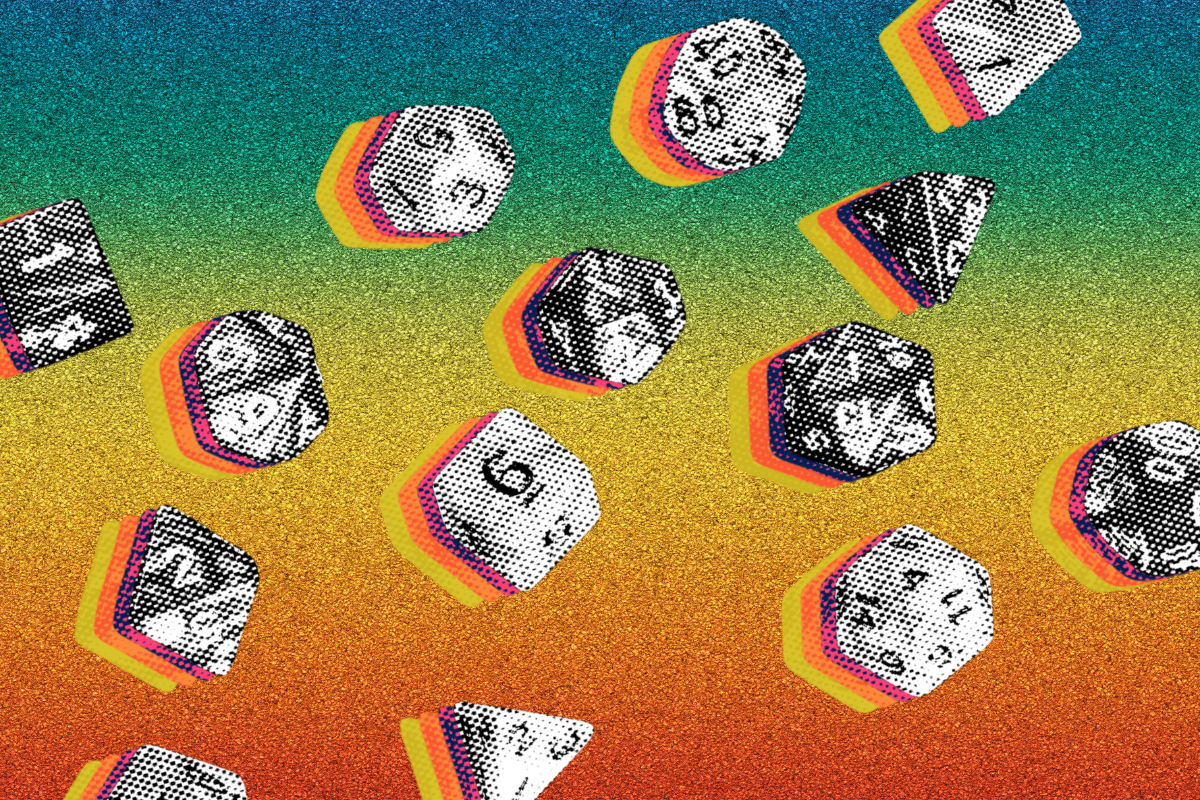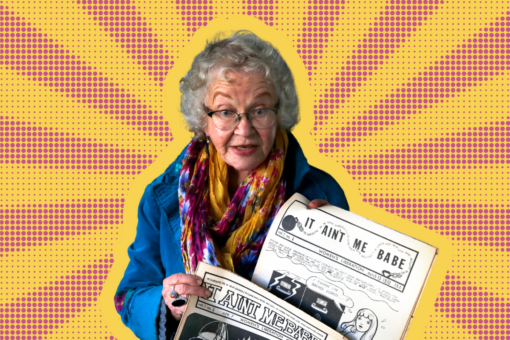A witch and medium from a mysterious land called Endor. A half-orc rabbi looking for his enchanted pomegranate. A gnome among humans who don’t get that there’s something different about her and her culture. Did I mention she has a set of magical candles? These are the characters who could populate the world of Dungeons & Dragons, if you get into homebrew.
I’ve been playing Dungeons & Dragons since I was eight years old, a natural extension of my childhood games running around the hills of England with my relatives, imagining we were superheroes or spies fleeing nefarious authorities. Now, two decades later, I continue to play the game, these days as a Dungeon Master, writing my own stories for my players to inhabit. This is a process called “homebrew” where players work with pre-written, “official” game rules, but are entirely able (with a bit of practice) to write their own stories within the game’s framework, inventing tales or borrowing story elements or devices from other media. This obviously allows for all kinds of potential fun, from ripping off stories that delight you to creating entirely new and utterly ridiculous scenarios for your players to indulge in.
But it also allows one to actively subvert or invert stereotypes, claiming some power back from a game which has at times seemed like an exclusive club, belonging to a certain kind of player.
For example, the original Dungeons and Dragons has some deep issues with antisemitism, including Jewish-coded dwarves, cabals of phylactery-wielding liches, and — my personal nemesis — the gold-obsessed legions of hook-nosed goblins. I grew up in a largely secular Jewish family where fantasy fiction was a shared vernacular for all of us, but these concerns totally passed me by as a small child: I didn’t understand that the game I loved had these, at times, insidious elements that aimed their glare at me specifically.
As a queer person as well as a Jew, using just the framework of the game but with my own content allows me to create worlds where historical bigotry against “people like me” just doesn’t exist: all of my non-player characters (NPCs) are gay, there is no such thing as homophobia, and the very mention of Judaism prompts an NPC to ask the players if they have spare time that evening to make minyan. When I do want to incorporate some of the crueler realities of existing as a marginalized person into the game, it’s on my own terms.
I wasn’t always happily creating my own worlds. Once I actively saw the flaws in Dungeons & Dragons, I drifted away from it for a few years, unable to ignore the problematic aspects of its rigid-seeming universes: the damsels in distress, the racially-coded monsters, the queer-coded villains. Now, as an adult, I also want to redeem or play with tropes that can so often be caricatured negatively in fantasy fiction more broadly: Why shouldn’t my scrappy trader have a heart of gold? Why shouldn’t the beautiful prince have a close relationship with his mother, rock a ton of body hair, and have a huge and glorious nose?
I can’t claim that I’m moving mountains with this style of gameplay, but I do feel like I’m doing something for myself, reclaiming tropes that could hurt me or banishing those that are so easily summoned by the official gameplay materials. I share these words with the hope that other Jewish and/or marginalized players can simply have a lot of fun creating their own D&D worlds. We can excavate a welcome space for ourselves in a game which can sometimes feel impenetrably dense with pre-existing lore, some of which actively wounds as you try to engage with it.
As my current game progresses (my darling players, stop reading here!), maybe my campaign group could look forward to meeting a golem – not the flattened and warped versions that currently exist in the game’s official materials, but a kind I’ve rewritten to fit closer to the complexities of Jewish lore. There’s so much room here for invention, but also such potential to evoke a cultural history I’ve longed to embrace. With every dice roll, I feel more and more connected to a culture from which I’ve at times felt distant – and to a pure sense of fun that I felt as a child.



